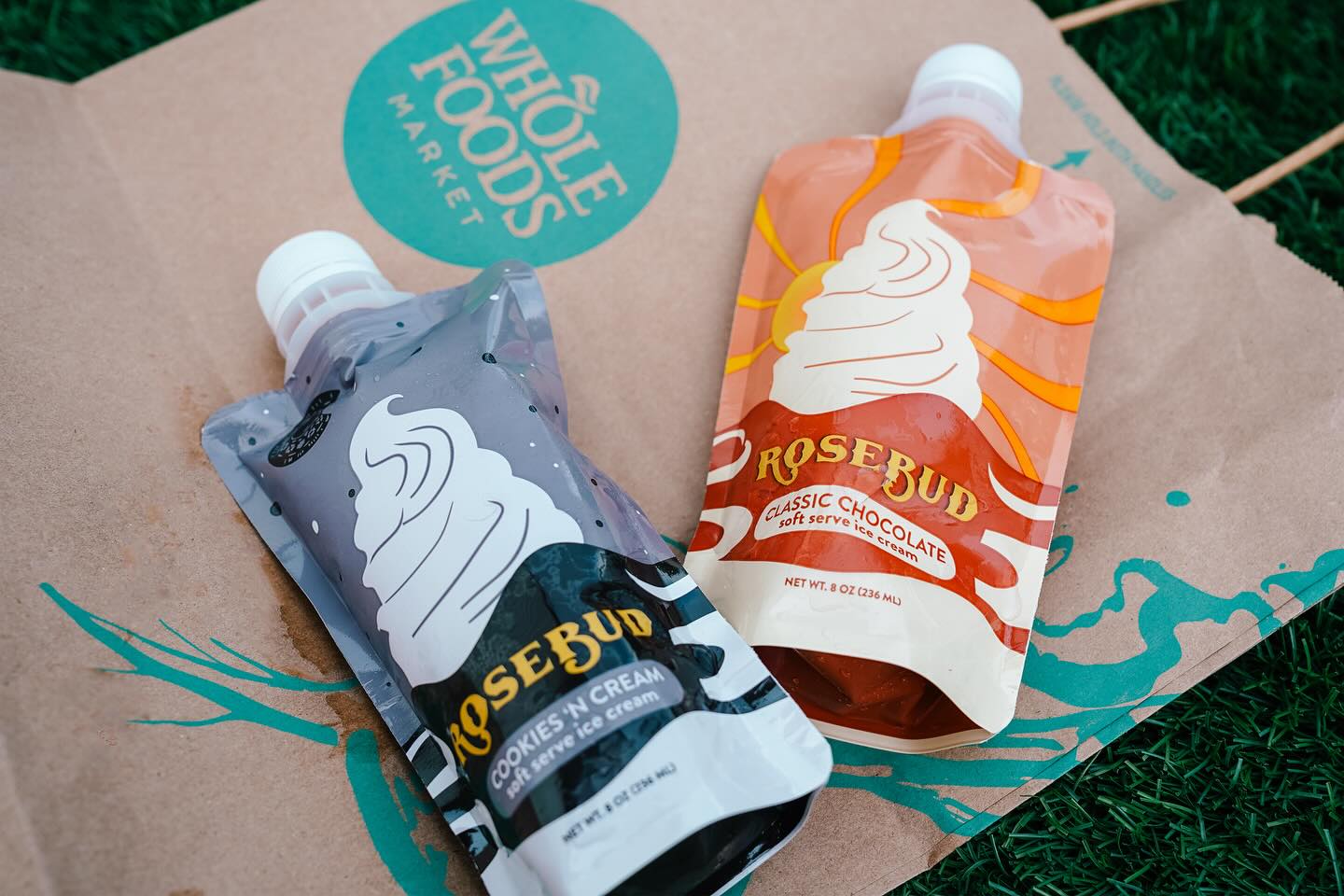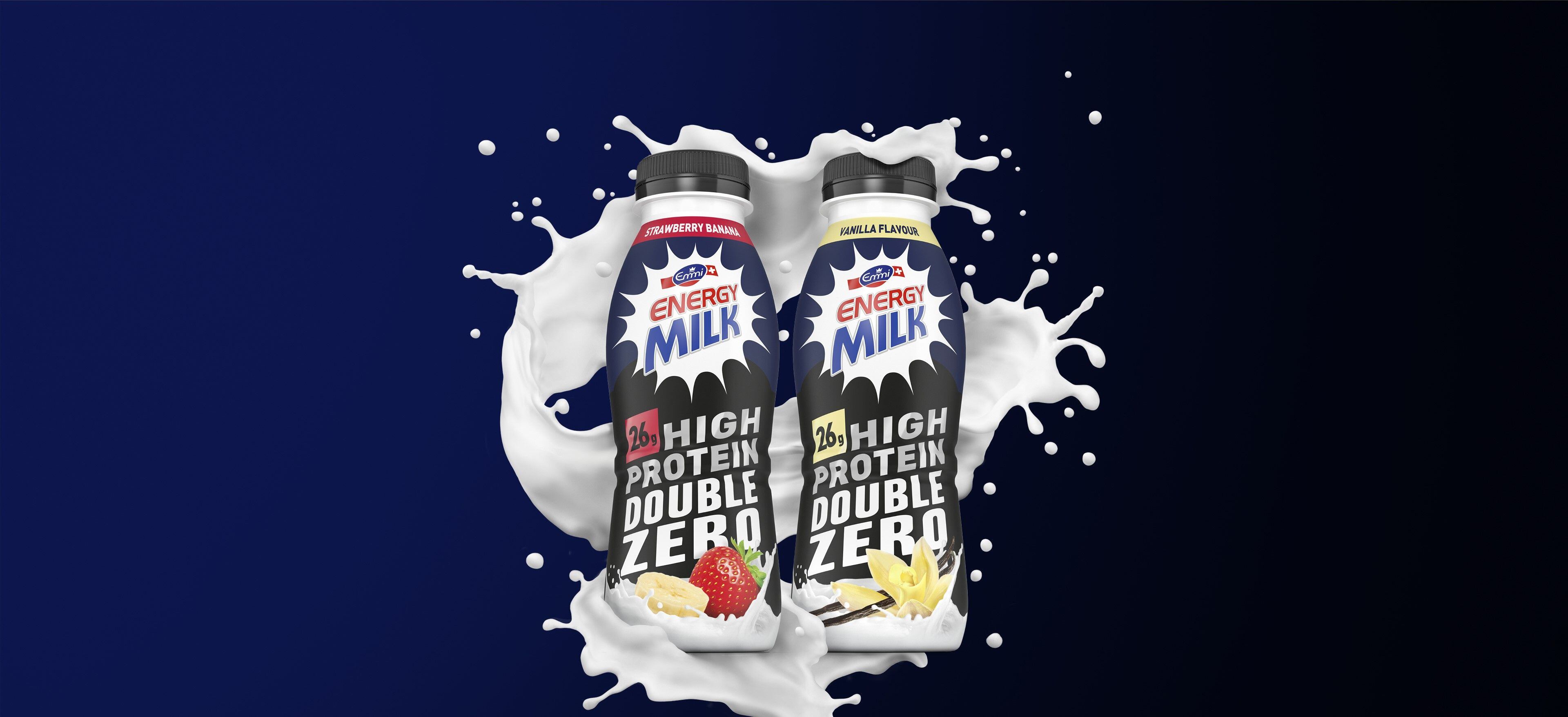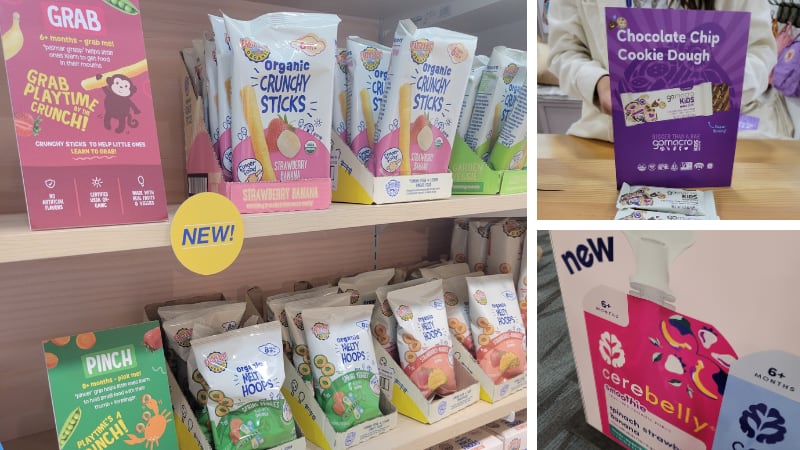Since Sam Rose first began working to launch his namesake business, RoseBud Ice Cream, in college in the mid-teens, he knew his product needed to stand out in a crowded marketplace.
It took more than a decade of experimenting with new ideas to find his niche, but the constant iteration paid off, leading Rose to develop a truly differentiated product in the US ice cream market – soft serve in a pouch.
The idea came after Rose’s sister mentioned how much easier it would be for her kid to eat ice cream without all the mess if it were in a pouch, similar to other products designed for children like applesauce.
Two years later, RoseBud Ice Cream is available in about 500 locations across the US, and is soon rolling out through last-mile delivery service DoorDash’s micro-fulfillment network DashMart.
His soft serve product has also earned Rose accolades from the dairy industry; in early September, RoseBud was awarded $20,000 in Midwest Dairy’s Future of Dairy Innovation Accelerator Pitch Event.
Trouble with THC
Rose first thought his one-of-a-kind idea was ice cream infused with THC, the psychoactive ingredient in cannabis. But upon graduating with a management degree from DePaul University in 2016, he quickly learned how many roadblocks stood in the way.
“THC and dairy are very complicated,” he said. “I thought it was a good idea to enter what I thought was an emerging market with a differentiated product format that could help get us shelf space, because it was so novel.”
After graduating, Rose moved to Denver, where recreational marijuana was legal, but selling the ice cream in cannabis dispensaries posed its own set of problems – like needing to buy freezers for the dispensaries to store the product.
He pivoted to CBD-infused ice cream, but after a couple of months he realized even CBD made it more difficult to get his product into stores.
Then Whole Foods called.
“They were like, ‘Hey, we would carry your product if it didn’t have CBD in it,’” he said. That caused the scrappy upstart to focus solely on good old-fashioned pints.
It wasn’t until 2023 that Rose had his eureka moment.
The power of pouch
RoseBud Ice Cream already was expanding with its pints, which come in cleverly named varieties like Fancy A** Vanilla, StrawVery Tasty and Mighty Fine Chocolate, when Rose said he was talking with his sister about his nephew’s upcoming birthday.
“I was asking if I could give him ice cream, and she suggested that I put ice cream in a baby food pouch, because he really likes pouches, and he’ll go crazy for it,” he said. “She was just joking around, but I was like, ‘Maybe there’s something there.’”
It dawned on Rose that putting soft serve in a pouch offered the potential to open up RoseBud Ice Cream to new venues like movie theaters, sporting event concession stands and more. And in a marketplace that was flooded with trendy options like high-protein and gluten-free ice creams, the pouch idea was truly different, he said.
He said products in pouches have increased 900% since 2010 because of the functional utility it gives parents and their children.
“It’s either going to get dropped, and then you’re going to have to deal with a kid crying, or it’s going to get all over their face and all over their hands,” he said, noting that kids are more conditioned to use pouches because of their popularization.
The US squeeze pouch market is expected to grow from $78.2 billion in 2025 to $119.8 billion in 2035 with an annual compound growth rate of 4.4%, according to Future Market Insights.
US is the target market of squeeze pouches, FMI said, noting that the majority of business hinges on top baby food and beverage brands.
“America has seen huge growth in snacking and eating on-the-go, and GoGo squeeZ and Capri Sun are taking advantage of it,” according to FMI. “Squeeze pouches have been designed by companies as recyclable ones to avoid wasting and product integrity because of heightened focus on green packaging solutions.”
Midwest Dairy approves
The novel packaging also caught the attention of Midwest Dairy, which awarded RoseBud the $20,000 grand prize in its contest that aims to “accelerate the next generation of dairy-forward entrepreneurs.”
“Dairy farmers have always been innovators, finding new ways to bring nutritious products to market and meet the changing needs of consumers,” said Beth Bruck-Upton, vice president of research and innovation at Midwest Dairy. “Today, that same spirit of innovation drives us to support emerging brands by providing the mentorship and resources they need to grow and succeed.”
Rose said he plans to use the money to help scale the business.
“To have this injection of $20,000 is really critical, because I’ve been really scrappy this whole time,” he said. “We’ve leveraged some debt to do a little bit of an expansion a few years ago, and then we did the friends and family fundraise as an equity deal, but other than that, I’m not backed by venture capital.”
Part of that is likely to simply help Rose keep his orders filled, he said.
“For the first time, keeping up with demand is the problem, not trying to create it,” he said.
DoorDash Rollout
That demand is likely to spike in the coming months, following a deal with DoorDash, which will soon offer RoseBud Ice Cream as a product in its DashMart micro-fulfillment centers, Rose said.
That partnership will make RoseBud Ice Cream available in about 40 new cities in Illinois, Texas, Colorado, Utah, Arizona and California, Rose said. “There’s maybe a couple of states we’re not in, but it’s all over the place now,” he said.




